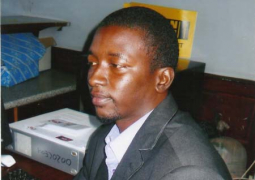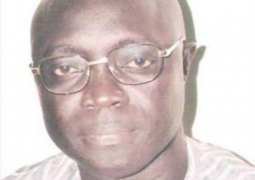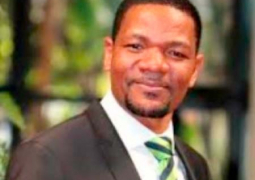The last major feast the Christian Church celebrated was Christmas - the Feast of the Nativity - the time when God took the form of a man (Jesus) to live among us.
We now celebrate Easter - the Feast of the Resurrection of Jesus. Before the Resurrection there had to be Good Friday, when Jesus suffered at the hands of those who feared him, and was finally put to death. After the pain and darkness (and even hopelessness) of Good Friday, we find light and life and hope in Easter.
After Jesus had risen and returned, as God, to the heavenly realms, others lived to tell the story. They were his followers, and part of the early Christian Church. A number of these followers wrote of their experience, and beliefs that came from this. One such person was John the Divine, who was exiled to the
"Do not be afraid.
l am the First and the Last.
I am the Living One;
I was dead, and behold lam alive for ever and ever.
And I hold the keys of death and Hades."
(Revelation 1: !7c 18)
This figure of the risen Lord tells us not to fear. There can always be hope. There can always be the gift of eternal life.
Over the past months our news has been full of reports and pictures of disaster and devastation. The world has been going through an economic crisis. Such a crisis affects all people; but is bound to be felt worst by those who already live on the margins - the vulnerable poor, sick, homeless, and so on.
We have also seen the devastation caused by earthquakes. The first was in
As if the
As Jesus hung on the cross for three long hours, his mother and others of his close disciples kept vigil. In his agony, he cannot have been unaware of their presence. This was a very dark time for all of them - not knowing what the future would hold. We even hear from scripture that darkness literally covered the land, as if in mourning and recognition of the significance of the events of that day. Our hope comes from the fact that that was not the end of the story. Jesus died on that day, but is not dead now because he is risen from the dead.
On the third day Jesus rose from the dead. He was seen by a number of people after his resurrection, to whom he gave joy, peace and hope. He first appeared to Mary Magdalene. Her tears of grief turned to joy as she beheld him. He appeared to his disciples, and gave them peace and hope.
In our world we can see so much that reflects Good Friday. However, we must try to remember that this is not the end of the story. Whatever we may face here on earth, we can be assured that there is something much better that we can receive from God. In our loss this could be to know God's comfort. Remember the beatitude - "Blessed are those who mourn, for they will be comforted" (Matthew 5: 4). In our journey with God it could be to know God's peace or joy or truth or justice. It could be in our calling to a life of service to God and our neighbour. It could be to see God's love reflected in our loved ones.
Ultimately, there will be an end time when all will be well.
"Then I saw a new heaven and a new earth,.for the first heaven and the first earth hoc/passed away
And I heard a loud voice from the throne saying,
"Now the dwelling of cod is with men, and he will live with them,
They will be his people, and God himself will be with them and be their God.
He will wipe every tear from their eyes.
There will be no more death or mourning or crying or pain, for the old order of things has passed away."
(Revelation 21: 1- 4 (abridged))
This is a wonderful picture of hope. What a world we have waiting for us! Then, all will be complete and fulfilled. Even today we can get glimpses of such a world - a world where God is King and God's will is done - the
We have much to celebrate today. Through Good Friday and Easter day - the Feast of the Resurrection - because Jesus rose from the dead, sin and death no longer hold power over us. We have hope of a better world to come. For our part in the world today, we also have a role to play. Our world can be a better place.
Let us daily seek God's will in our lives. Let us love God with our whole being; and love our neighbour as ourselves. Easy to say, but not always so easy to do. However, if we truly want a better world, this is the way; and God is ready and willing to empower us to do his will.
It is my prayer for us all this Easter, that we may come to know something of the hope, joy and peace of Easter.
On behalf of all Anglican Christians in The Gambia,
DEO GRATIAS!
Read Other Articles In Article (Archive)




